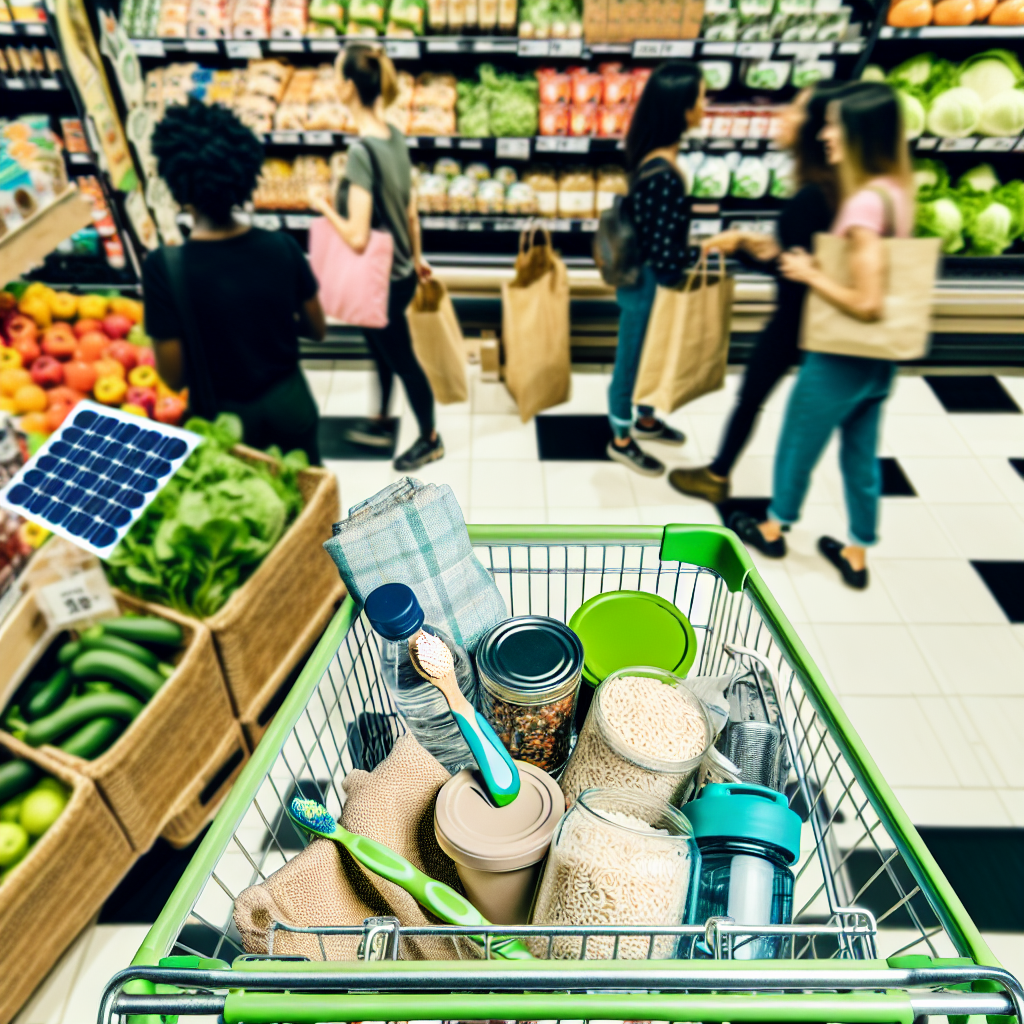10 Surprising Ways to Lower Your Grocery Bill While Helping the Planet
Introduction
Hi there, fellow money-saving eco-warrior! Let’s talk about shopping—the kind where you don’t spend too much and also help the planet during your weekly grocery runs. Since groceries are getting more expensive due to things like supply issues and global warming, a lot of us need ways to make our money go further. But guess what? By shopping smartly, you can also help save the Earth! Here are ten clever tricks to help you spend less on groceries while keeping your carbon footprint small. Let’s jump in!
1. Plan Your Meals to Be Eco-Friendly
-
Make a Meal Plan: Imagine having fewer dinner emergencies because you forgot to plan. By organizing your meals for the week, you won’t end up buying stuff you don’t use, which usually turns into a fridge science project. A good meal plan saves you money and cuts down on food waste.
-
Use a Shopping List: Ah, the trusty shopping list—your partner in avoiding impulse buys. Keep it with you and stick to it. This means no more pricey almond milk just because the carton looks cool.
-
Have Leftover Nights: Who doesn’t love leftover night? It’s a break from cooking and helps you use what’s already in your fridge. Get creative! Last night’s chili can be a tasty topping for baked potatoes.
2. Try Eating More Plants
-
Add More Plant-Based Meals: Did you know plant-based meals are cheaper and kinder to the planet? Try to find at least three vegetarian meals to try each week.
-
Try Meat Alternatives: Lentils, chickpeas, tofu, and more! Legumes and other plant-based proteins are affordable, tasty, and flexible. Make lentil tacos or a chickpea curry—your taste buds and wallet will be happy.
-
Buy Seasonal Produce: Buying fruits and veggies that are in season supports local farmers and costs less. Plus, they taste better. A juicy apple in the fall? Yes, please!
3. Shop Smart: Where and When
-
Buy in Bulk: Things like oats, beans, and grains are cheaper when bought in bulk. This not only saves money but also reduces packaging waste. It’s a win-win!
-
Visit Farmers Markets: Farmers markets are lively places where you can get fresh produce straight from the source. Plus, you might end up chatting with farmers and sometimes getting discounts or samples!
-
Shop During Off-Peak Hours: Look for markdowns at less busy times. Stores often cut prices on perishable items late at night or early in the morning. Late-night shopping could mean big savings!
4. Use Less Single-Use Packaging
-
Bring Your Own Bags: Skip the plastic bags and use reusable ones. Many stores give you a small discount for each bag you bring. It’s like getting paid to be eco-friendly!
-
Choose Bulk Bins: Reuse old jars and fill them with grains and spices from bulk bins. This not only cuts down on packaging but usually costs less too.
-
Pick Products with Less Packaging: Look for brands that use eco-friendly packaging. The less paper and plastic, the better for both your conscience and the planet!
5. Save and Use Food Wisely
-
Learn Preservation Techniques: Canning, freezing, and dehydrating are helpful. Save money by preserving in-season produce for later. You’ll appreciate homemade strawberry jam in the middle of winter!
-
Use Scraps Wisely: Turn veggie scraps into compost or leftover chicken bones for broth. You’ll waste less and get more flavor.
-
Cook in Batches: Make meals in bulk and freeze them for later. This saves time during the week and can cut down on your monthly food costs.
6. Start a Small Home Garden
-
Grow Easy Veggies: Tomatoes, herbs, and lettuce are perfect for beginner gardeners. Even with just a window ledge, these plants can do well with some care.
-
Try Container and Vertical Gardening: If you don’t have much space, vertical gardens or container gardening are great options. How about some colorful pots?
-
Reduce Food Miles: Growing your own food cuts down the distance it travels from the farm to your table. Plus, nothing beats a salad made from veggies you grew yourself!
7. Use Coupons and Loyalty Programs
-
Organize Digital Coupons: Apps like Ibotta or Rakuten help you get smiles from your savings on the next grocery trip. Digital coupons are easy to keep track of and often offer good discounts.
-
Join Store Loyalty Programs: Sign up for loyalty programs at local stores to get member-only deals. Those points add up quicker than you think!
-
Become Part of Food Share Networks: Join community co-ops or food share networks that distribute extra food. You’re saving money and helping reduce food waste.
8. Eat Less Processed Foods
-
Health and Cost Benefits: Processed foods usually cost more and offer less nutrition. By choosing whole foods, you’ll likely spend less and feel healthier.
-
Make Your Own Snacks and Meals: Skip the pre-packaged stuff and make goodies at home. Think homemade granola bars, trail mixes, or pop your own popcorn!
-
Know the Hidden Costs of Convenience: Ready-made foods can cost more than cooking meals from scratch. With some planning, you can skip these extra costs.
Try out these tips and see how easy and fun it is to save money on groceries while helping the environment! Remember, each mindful choice makes a difference for your wallet and for the Earth. Now go shop smart, you eco-friendly saver! 🌍💸
